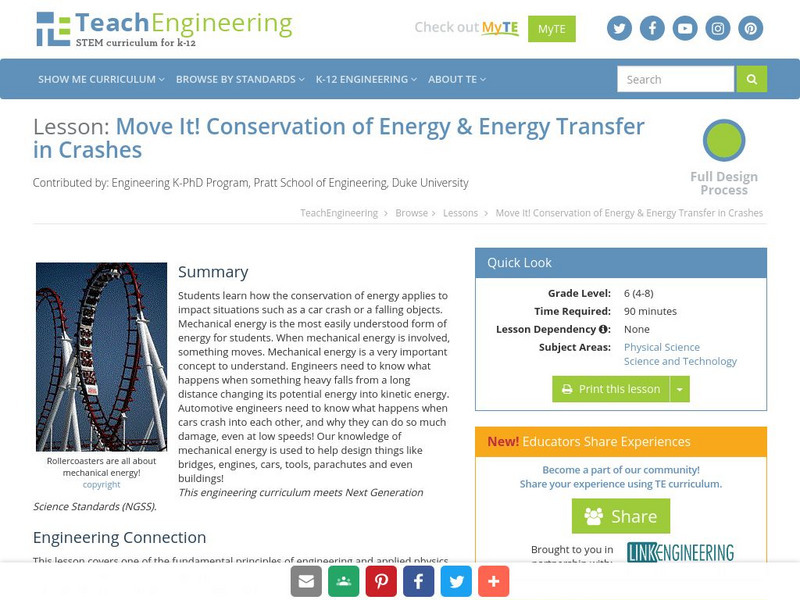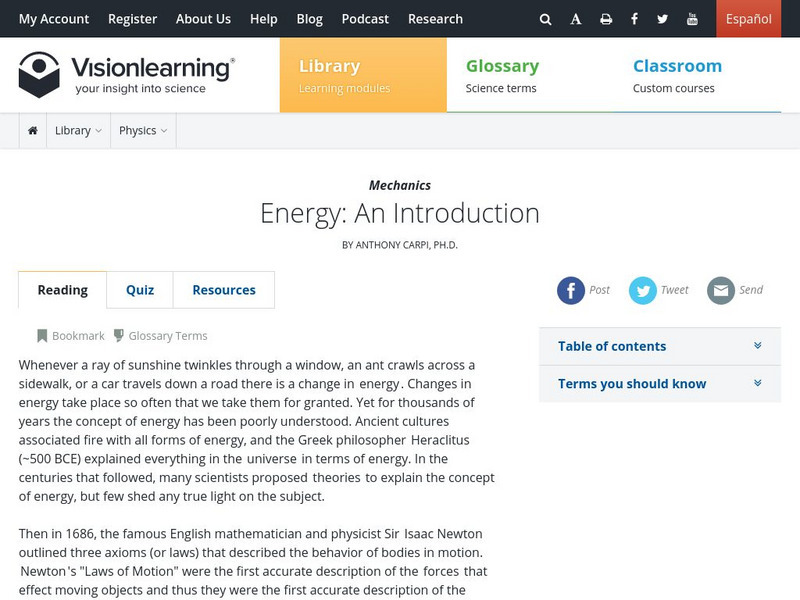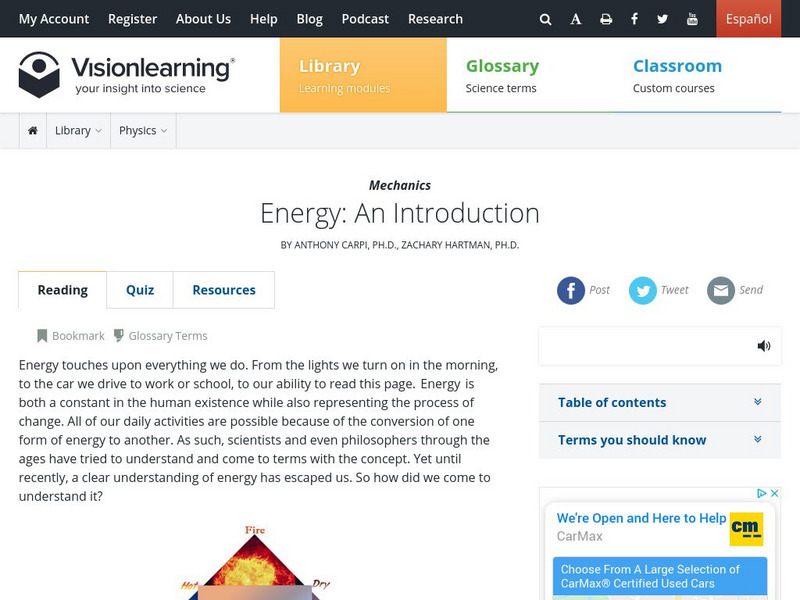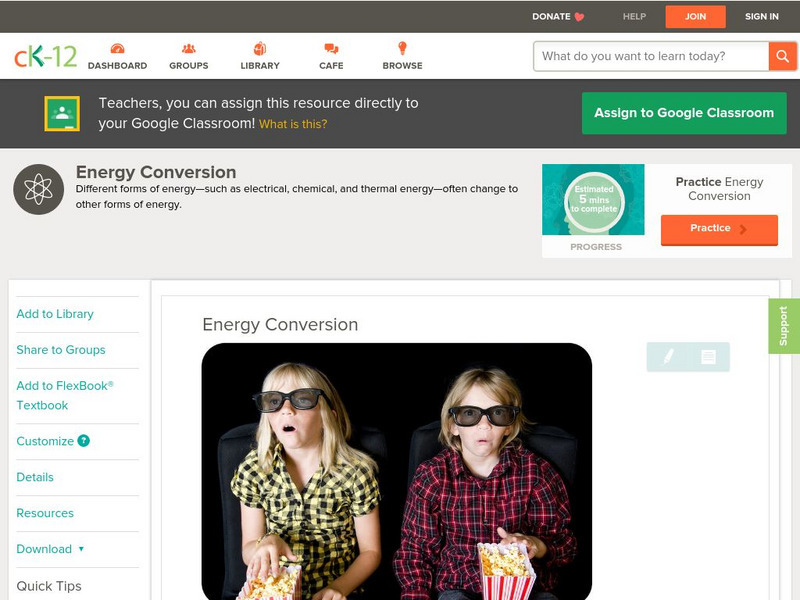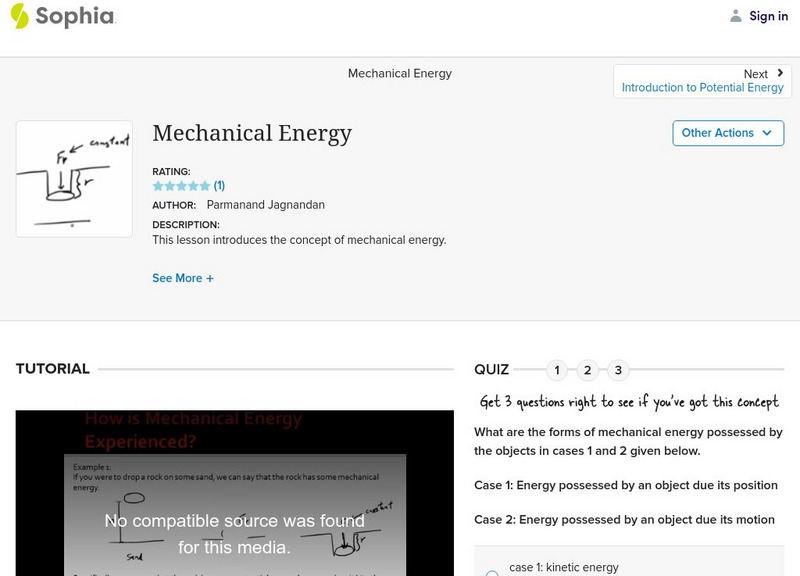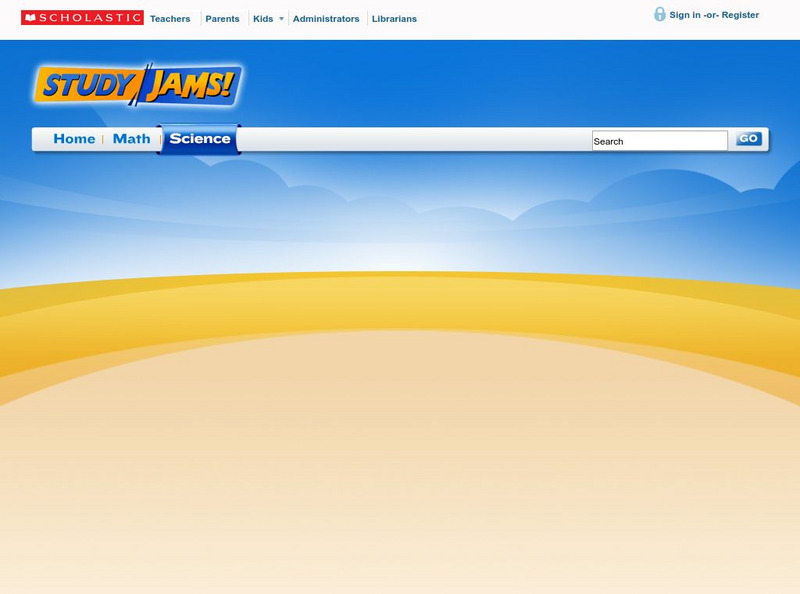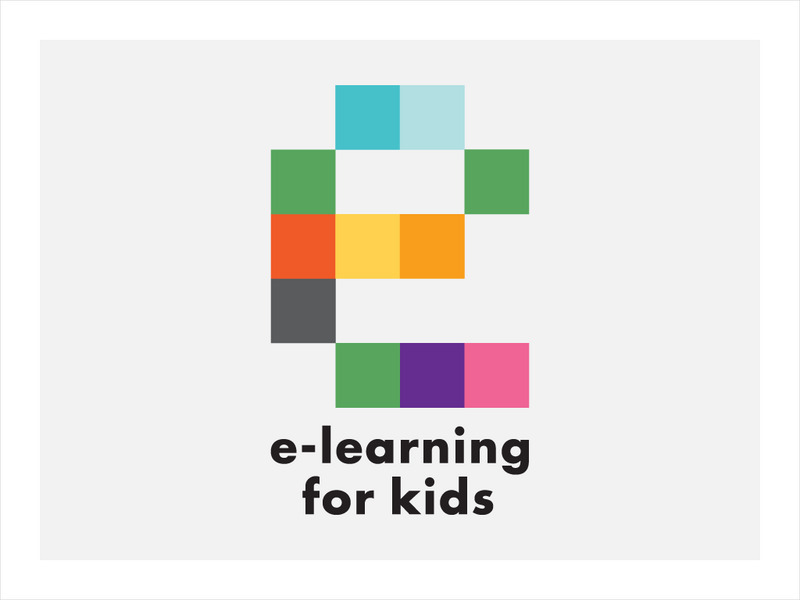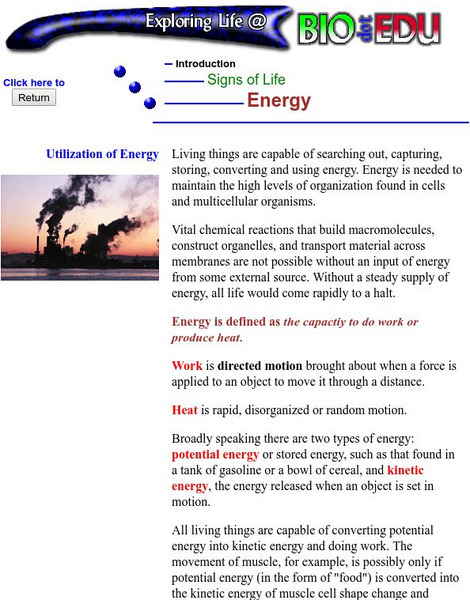Physics Classroom
The Physics Classroom: Work and Energy: Energy Transformation on Roller Coasters
Using a roller coaster as an example, the transformation of mechanical energy from the form of potential to the form of kinetic and vice versa is explained and illustrated in the animation.
eSchool Today
E School Today: Mechanical Energy
Learn about mechanical energy, and its forms of potential and kinetic.
TeachEngineering
Teach Engineering: Move It!
Mechanical energy is the most easily understood form of energy for students. When there is mechanical energy involved, something moves. Mechanical energy is a very important concept to understand. Engineers need to know what happens when...
Texas Education Agency
Texas Gateway: Forms of Energy
Given diagrams, illustrations, or descriptions, students will identify the types of energy.
Vision Learning
Visionlearning: General Science: Energy: An Introduction
Instructional module focusing on energy. Discussion includes forms of energy, conservation of energy, and the laws of thermodynamics. Site also includes an interactive practice quiz and links relating to the topic.
Vision Learning
Visionlearning: Mechanics: Energy
Definitions of various forms of energy are presented along with a brief scientific history of energy related concepts.
CK-12 Foundation
Ck 12: Physical Science: Energy Conversion
[Free Registration/Login may be required to access all resource tools.] Decribes how energy changes from one form to another and energy changes between kinetic and potential energy.
Sophia Learning
Sophia: Mechanical Energy
Understand when objects have mechanical energy with this video lesson. Also learn the difference between potential and kinetic energy. The video also discusses the factors that influence both potential and kinetic energy using examples....
Lumen Learning
Lumen: Boundless Chemistry: Types of Energy
This section of a chemistry textbook reviews the different forms of energy: kinetic, potential, and chemical.
US Energy Information Administration
U.s. Eia Energy Kids: Energy Basics
Learn about the definition of energy, the forms that it comes in, and the difference between renewable and nonrenewable sources.
Scholastic
Scholastic: Study Jams! Science: Matter: Energy & Matter
A video and a short quiz on the different forms of energy, and how energy moves or changes matter.
Concord Consortium
Concord Consortium: Energy of Bond Formation
Explore distance and energy of bond formation.
TeachEngineering
Teach Engineering: Energy Forms and States Demonstrations
Demonstrations explain the concepts of energy forms (sound, chemical, radiant [light], electrical, atomic [nuclear], mechanical, thermal [heat]) and states (potential, kinetic).
TeachEngineering
Teach Engineering: Renewable Energy Living Lab: The Bright Idea
Students use real-world data to evaluate the feasibility of solar energy and other renewable energy sources in different U.S. locations. Working in small groups, students act as engineers evaluating the suitability of installing solar...
E-learning for Kids
E Learning for Kids: Science: Antilles: What Are the Different Forms of Energy?
Students will learn about the different types and sources of energy, including heat and light, electrical, potential, and kinetic energy.
City University of New York
Energy: Characteristics of Life
An explanation of types of energy, how living things use energy and how they can convert energy forms. This is a good, basic, start to studying this characteristic of life.
Georgia State University
Georgia State University: Hyper Physics: Point Charge Potential
This site from the Georgia State University explains the concept of electric potential about a point charge or combination of severat point charges. An interactive JavaScript form allows the visitor to investigate the effect of distance...
Concord Consortium
Concord Consortium: How Can a Small Spark Start a Huge Explosion?
Students explore connections between electric forces and molecules using simulations, and explain energy transfers using conservation of energy. This concept will be explored in the following activities. Activity 1 What makes materials...
CK-12 Foundation
Ck 12: Energy and Its Forms
[Free Registration/Login may be required to access all resource tools.] Students explore the different forms of energy and investigate how the law of conservation of energy plays an important part of those forms.
Other
Forms of Energy: Heat, Radiant, Electrical, Chemical, Nuclear Energy
Explains what each of these types of energy is and provides examples.
Other
Ed informatics.com: What Is Work, Energy and Power?
Defines work, energy, and power. Explains the work-energy principle, types and forms of energy, and presents some exercises to try.
Science4Fun
Science4 Fun: Energy
What is energy? Article provides a brief discussion of the many different forms of energy.
The Tech Interactive
The Tech Museum of Innovation: Save the Hiker [Pdf]
Can you build a device that will deliver life-saving treatment to someone in a hazardous situation? During this lesson, students will learn how energy is converted and transferred between objects. Working in groups and through the...
SMART Technologies
Smart: Forms of Energy
Expose students to this introduction to several different forms of energy.




